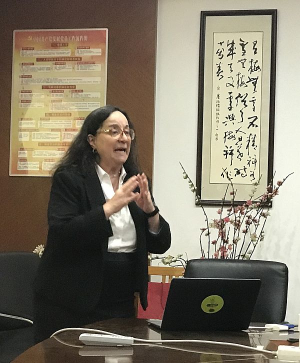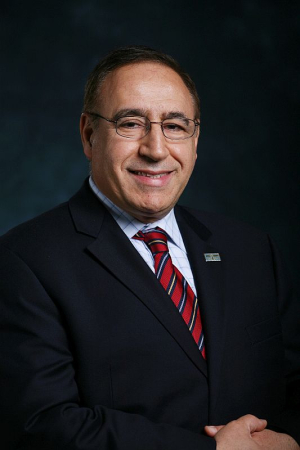A research paper earlier this year from the Akay Lab biomedical research team at the University of Houston’s Cullen College of Engineering continues to make an impact, as the Institute of Electrical and Electronics Engineers (IEEE) Engineering in Medicine and Biology Society noted that is the IEEE’s second most popular paper in the IEEE Xplore Digital Library as of mid-September.
The library provides access to more than five million documents, including research articles, standards, transactions, eBooks and conference publications. The paper, “Temozolomide in Combination With NF-κB Inhibitor Significantly Disrupts the Glioblastoma Multiforme Spheroid Formation,” was posted online by the IEEE in December 2019.
Since that time, it was downloaded more than 10,000 times in July 2020, making it the highest downloaded paper in July alone. The paper was published in the inaugural issue of the IEEE Engineering in Medicine & Biology Society’s Open Journal of Engineering in Medicine and Biology as a peer-reviewed, invited paper.
The lab reported an improvement on the previously developed “Brain Cancer Chip for Precision Medicine.” The new chip allows multiple-simultaneous drug administration, and a massive parallel testing of drug response for patients with glioblastoma (GBM), the most common malignant brain tumor, accounting for 50 percent of all cases. GBM patients have a five-year survival rate of only 5.6 percent.
Dr. Metin Akay, the John S. Dunn Endowed Chair Professor of Biomedical Engineering and department chair, is the lead investigator in the project. Dr. Yasemin Akay, Instructional Associate Professor, is the co-lead investigator in the project. Also contributing to the research were research assistant professor Naze G. Avci and post-doctoral fellow Hui Xia. The tissue samples were provided by project collaborator Dr. Jay-Jiguang Zhu, director of Neuro Oncology at the McGovern Medical School at UT Health.
Metin Akay said he was honored that his group's paper had been read, and noted that he had gotten positive feedback from people involved in academia and industry.
“We were pleasantly surprised, humbled, but also energized more,” he said of the response, adding that it helped encourage them to continue their work. “We felt we must increase our efforts to translate our technologies since it is a small step for precision medicine in GBM research.”
The ability to quickly assess the effectiveness of a cancer drug would be an improvement over typical cancer protocols, in which chemotherapy drugs are given, then tested for several months, with a patient switched to another drug if the first is ineffective. The new device can determine the optimal drug combination in as little as two weeks.
Akay’s team takes a piece of a tumor biopsy, cultures it and puts it in the chip. Then they add chemotherapy drugs to the chip’s microwells to determine the best drug combination and the specific proportion that kills the most tumor cells. The team cultured 3D tumor spheroids, or clusters, from GBM cell lines as well as patient-derived GBM cells in vitro and investigated the effect of the combination of Temozolomide and a nuclear factor-κB inhibitor on tumor growth.
“We are currently working to scale up our brain chip to allow us to use four different drugs at the same time,” Yasemin Akay said. “We also plan to integrate the next generation gene sequence into our brain chip platform to investigate the effect of these drugs on the gene expressions of tumor spheroids.”

